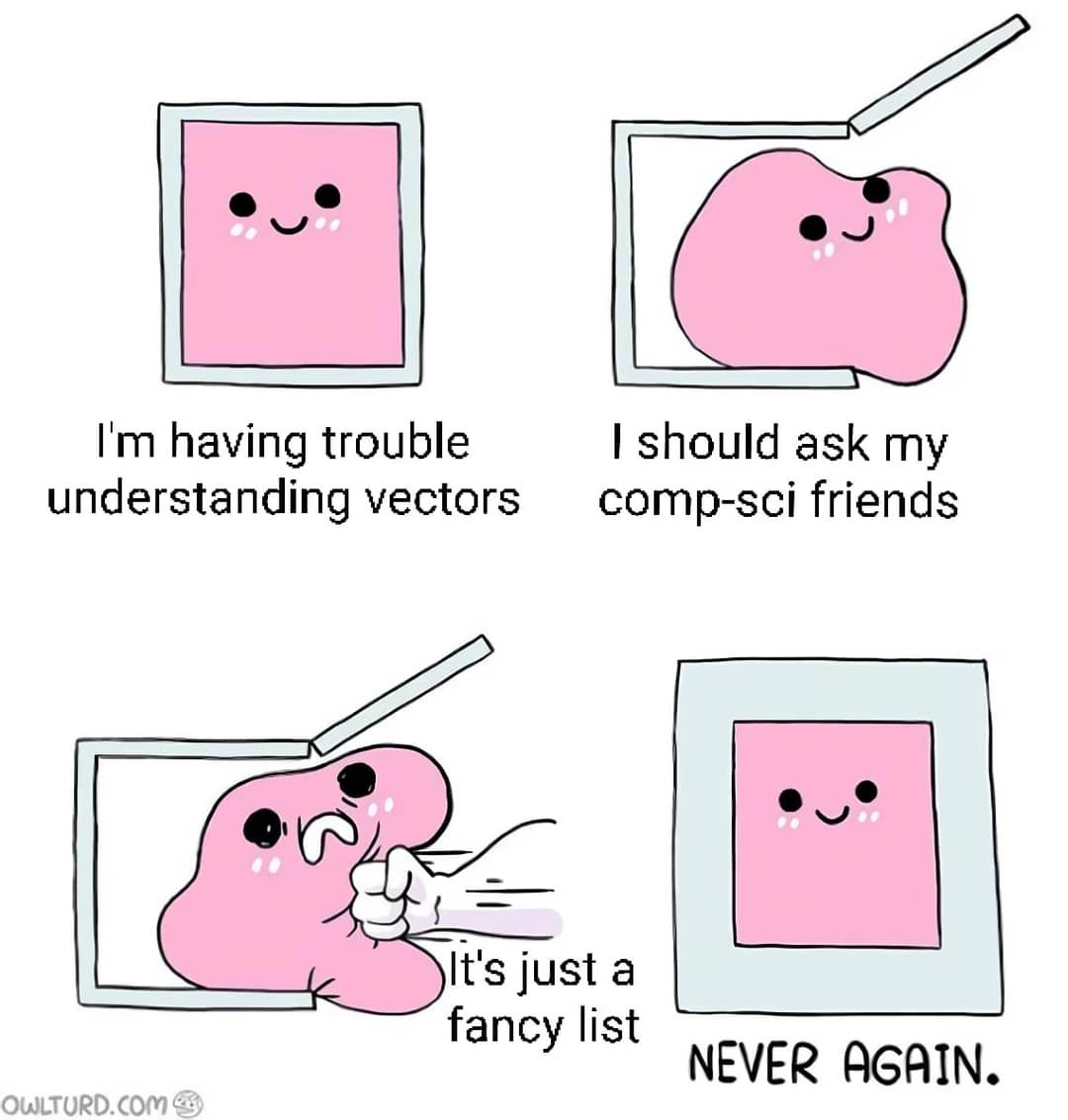this post was submitted on 28 Apr 2024
491 points (96.8% liked)
Science Memes
13080 readers
1580 users here now
Welcome to c/science_memes @ Mander.xyz!
A place for majestic STEMLORD peacocking, as well as memes about the realities of working in a lab.

Rules
- Don't throw mud. Behave like an intellectual and remember the human.
- Keep it rooted (on topic).
- No spam.
- Infographics welcome, get schooled.
This is a science community. We use the Dawkins definition of meme.
Research Committee
Other Mander Communities
Science and Research
Biology and Life Sciences
- !abiogenesis@mander.xyz
- !animal-behavior@mander.xyz
- !anthropology@mander.xyz
- !arachnology@mander.xyz
- !balconygardening@slrpnk.net
- !biodiversity@mander.xyz
- !biology@mander.xyz
- !biophysics@mander.xyz
- !botany@mander.xyz
- !ecology@mander.xyz
- !entomology@mander.xyz
- !fermentation@mander.xyz
- !herpetology@mander.xyz
- !houseplants@mander.xyz
- !medicine@mander.xyz
- !microscopy@mander.xyz
- !mycology@mander.xyz
- !nudibranchs@mander.xyz
- !nutrition@mander.xyz
- !palaeoecology@mander.xyz
- !palaeontology@mander.xyz
- !photosynthesis@mander.xyz
- !plantid@mander.xyz
- !plants@mander.xyz
- !reptiles and amphibians@mander.xyz
Physical Sciences
- !astronomy@mander.xyz
- !chemistry@mander.xyz
- !earthscience@mander.xyz
- !geography@mander.xyz
- !geospatial@mander.xyz
- !nuclear@mander.xyz
- !physics@mander.xyz
- !quantum-computing@mander.xyz
- !spectroscopy@mander.xyz
Humanities and Social Sciences
Practical and Applied Sciences
- !exercise-and sports-science@mander.xyz
- !gardening@mander.xyz
- !self sufficiency@mander.xyz
- !soilscience@slrpnk.net
- !terrariums@mander.xyz
- !timelapse@mander.xyz
Memes
Miscellaneous
founded 2 years ago
MODERATORS
you are viewing a single comment's thread
view the rest of the comments
view the rest of the comments

Its the algebraic properties that are important, not all vectors are n-tuples, eg the set of polynomials of degree less than n.
You need a basis to coordinate a vector, you can work with vectors without doing that and just deal with the algebraic properties. The coordinate representation is dependent on the basis chosen and isn't fundamental to the vector. So calling them n-tuples isn't technically correct.
You can turn them into a set of coordinates if you have a basis, but the fact that you can do that is because of the algebraic properties so it's those properties which define what a vector is.
I think a better example to show how vectors don't necessarily need to be what people conceptualize as n-tuples would have been the real numbers. (Of course, these can be considered 1-tuples, but the same can be said of any arbitrary set element that is not itself a tuple with more entries.) A cooler example would have been R[x] (the ring of real-valued polynomials of a single variable) especially since an isomorphic ring using n-tuples would be a more cumbersome representation of the algebra.